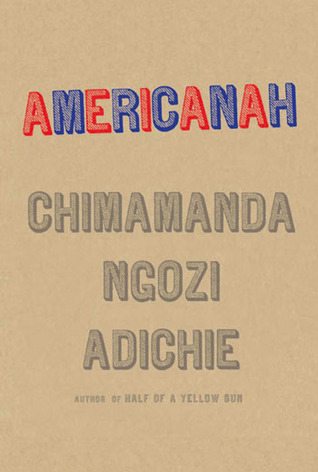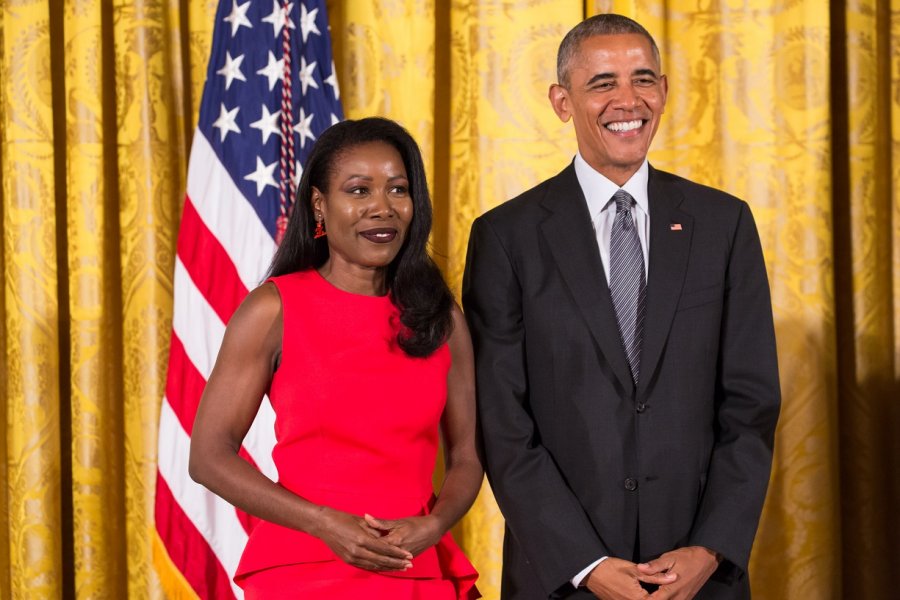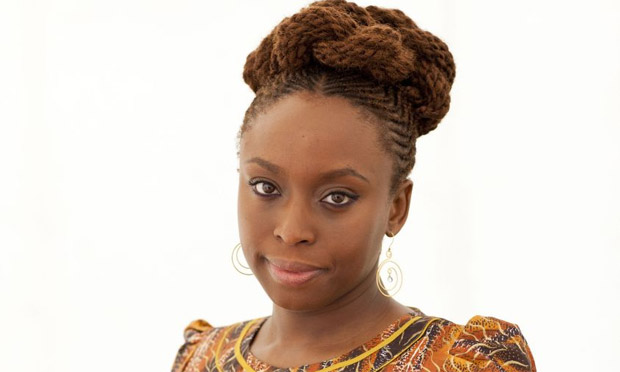Americanah
Chimamanda Ngozi Adichie
Knopf, 477 pp., $26.95
Hair asserts itself on the first page of “Americanah,” a knowing, prickly and virtuosic novel from Chimamanda Ngozi Adichie. She was 29 when she won an Anisfield-Wolf award in 2007 for “Half of a Yellow Sun”; she picked up a MacArthur Foundation “genius” grant the following year. Her mother, a Nigerian university registrar, likes to say little Chimamanda started to read when she was 2. The writer herself thinks it was probably around age 4.
“Americanah” wears its genius lightly, starting with a pleasurable and assured set-up chapter that puts its central character Ifemelu on a train from Princeton to Trenton, N.J. Her mission: to have her hair braided. After 13 years stateside, most recently on a fellowship to Princeton, Ifemelu has decided to return to Lagos, Nigeria. At the salon, she asks for “a medium kinky twist” and negotiates $40 off the $200 asking price. The salon is thick with relaxing chemicals, hair extensions and black female sensibilities—a rich elixir that brings out the personalities and styles of the women gathered there. The air-conditioner is broken; Nollywood melodramas play across the television. Adiche returns her readers to the shop again and again.
All manner of hair and women come under scrutiny, including “the clamped, flattened” appearance of the current first Lady: “Still, there was in Michelle Obama’s overly arched eyebrows and in her belt worn higher on her waist than tradition would care for, a glint of her old self. It was this that drew Ifemelu, the absence of apology, the promise of honesty.”
Ifemelu herself is blunt; all of her opinions are strong. She writes a popular, anonymous blog called “Raceteenth or Various Observations About American Blacks (Those Formerly Known as Negroes) by a Non-American Black.” The novel contains a handful of these posts – one very long installment is improbably read aloud at a party. The voice is funny, astringent and revelatory: “When white people say dark they mean Greek or Italian but when black people say dark they mean Grace Jones.” I can imagine both Cornel West and Clarence Thomas learning a thing or two. I certainly did – none of it particularly flattering. No place or demographic niche escapes unscathed.
“Americanah”—it should be stressed—doesn’t reprimand. The writing glints; minor characters flair and spark: “The General had yellowed eyes, which suggested to Ifemelu a malnourished childhood. His solid thickset body spoke of fights that he had started and won, and the buckteeth that gaped through his lips made him seem vaguely dangerous.”
At the braiding salon, Ifemelu pegs a young white woman named Kelsey with “the nationalism of liberal Americans who copiously criticized America but did not like you to do so; they expected you to be silent and grateful, and always reminded you of how much better than wherever you had come from America is.” This woman is reading to prepare for a sight-seeing trip to Africa. She finds “Things Fall Apart” “a little quaint, right?” but says “A Bend in the River” made her “truly understand how modern Africa works.” In one withering paragraph, Ifemelu blows up the enshrined V.S. Naipaul novel so completely that it left me gasping. At such moments, it is hard not to see Ifemelu as a doppelganger for Adichie.
Earlier this month, the author told National Public Radio that “this is a novel about love, about race, and about hair.” Ifemelu’s core love interest is her secondary school sweetheart, Obinze, with whom she cuts off communication after she enters a very bad patch in the United States. Obinze, for his part, makes his way to London, and even as everyone in his smart set in Nigeria “joked about people who went abroad to clean toilets,” he starts work with a lavatory brush. Later, at a London dinner party, Obinze listens to guests who are sympathetic to immigrants fleeing atrocity, but not those seeking an economic foothold:
“They would not understand why people like him, who were raised well fed and watered but mired in dissatisfaction, conditioned from birth to look towards somewhere else, eternally convinced that real lives happened in that somewhere else, were now resolved to do dangerous things, illegal things, so as to leave, none of them starving, or raped, or from burned villages, but merely hungry for choice and certainty.”
Adichie’s cultural acuity is a marvel, but she glosses how some systems create more “choice and certainty” and others less. Her observations hug the interior. Much of the book is dialogue. One blog post mentions Beyonce: “We all love Bey but how about she show us, just once, what her hair looks like when it grows from her scalp?”
The author, interested in “the rolling contradictions that were the world,” cleaves them open on three continents. Those who like their literature bracing should crowd in for a look.




Anisfield-Wolf Book Awards | Chimamanda Ngozi Adichie Wins National Book Critics Award For “Americanah”
March 14, 2014
[…] Long, Anisfield-Wolf manager and judge for the NBCC, praised Adichie’s latest: “Americanah”—it should be stressed—doesn’t reprimand. The writing glints; minor […]
Simon Njoku
September 5, 2014
Every work of Chimamanda Ngozi is a source of great inspiration to millions of people across the globe